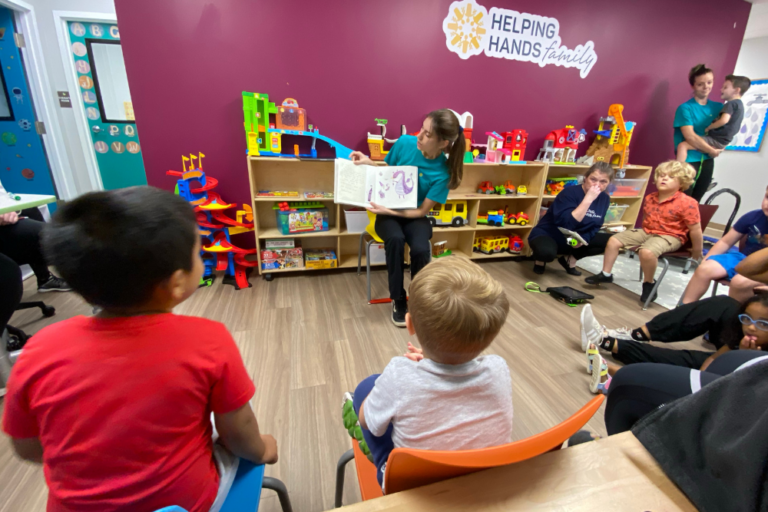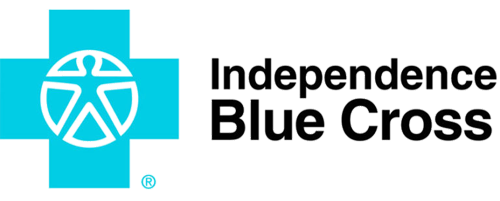Autism Services in Howard County, MD
Clinic Locations
Get a Consultation
Let us show you how ABA Therapy can help your child achieve their greatest potential.
If you are a parent of a child with autism in Howard County, MD, we understand the challenges you may face. You want the best for your child, and thankfully, we are here to help! Our team of Board-Certified Behavior Analysts (BCBAs) and Registered Behavior Technicians (RBTs) provides compassionate and expert-led Applied Behavior Analysis (ABA) therapy. At our Howard County, MD autism clinic and other locations, you’ll find the guidance, support, and care your child needs to thrive.
The Helping Hands Family difference in Howard County, MD:
- We apply an evidence-based ABA therapy that is child-led and play-based. We offer colorful and bright clinics with fun games and engaging activities.
- We provide Parent Training to help you incorporate ABA therapy strategies beyond the clinic.
Helping Hands Family is:
- A member of the Council of Autism Providers
- Accredited by the Behavioral Health Center of Excellence
Through this approach, children with autism can improve their social, behavioral, and learning skills. Our ABA services in Montgomery County, MD, focus on a naturalistic, child-friendly approach to ABA therapy:
- Learning feels like play in our fun, engaging environment.
- Our caring therapists guide each child with support and skill-building.
- Games make therapy interactive and exciting.
- Encouragement and positive reinforcement build confidence and success.

We Offer Personalized ABA Therapy
The autism therapy in Columbia, MD, and our other clinic locations is all about personalized ABA support for our expert ABA team. We use the initial ABA therapy session to get to know your child’s strengths, challenges, and learning style. From there, we create a customized ABA treatment plan designed to help them grow, learn, and thrive in a way that works best for them! ABA therapy is an evidence-based approach that is personalized to your child’s needs and is endorsed by:
- The US Surgeon General
- The American Psychological Association
Our play-based and child-led ABA therapy sessions help your child build important social, behavioral, and learning skills. ABA therapy studies learning and behavior to help children with autism:
- Improve focus
- Increase self-awareness
- Develop social skills
- Support in reducing self-harm
- Encourage better communication
- Enhance learning skills
- Assist children in expressing themselves more clearly
The Role of Reinforcement in ABA Therapy
At Helping Hands Family in Howard County, MD, every ABA therapy session is built on positive reinforcement and encouragement. By celebrating progress, our ABA therapists build trust and motivation, which helps your child strengthen positive behaviors while reducing challenges.
Our ABA services use positive reinforcement to encourage and strengthen important behaviors. Through constant praise, encouragement, and rewards, we help keep your child motivated, engaged, and excited to learn!


How to Build a Supportive Environment for ABA Therapy at Home
At Helping Hands Family in Howard County, MD, our ABA therapy sessions are focused on trust, compassion, and connection. While our ABA therapy sessions are largely driven by the interactions between our ABA therapists and your child, your role as a parent is just as important! Here are some tips for building a supportive ABA environment at home.
- Stick to a Routine: Keep daily activities like eating, sleeping, and playtime consistent to provide structure and predictability.
- Create an Organized Space: A structured home environment helps. Set clear places for toys, clothes, and other essentials
- Use Positive Reinforcement: Celebrate wins with praise, rewards, and encouragement to reinforce desired behaviors
- Manage Challenging Behaviors: Identify and avoid triggers while using reward-based strategies to promote positive actions
- Make it Easy: Break tasks into small, manageable steps and encourage progress with praise and support
- Rely on Your ABA Therapist: If challenges persist, your ABA therapist can help adjust strategies and find new motivators.
If you are a parent of a child with autism and have questions about how our ABA therapy services can help, or have any other questions, contact us now.
How ABA Therapy Helps with Challenging Behaviors
1. Identifying the Root Cause of Challenging Behaviors
- How ABA helps: ABA therapists carefully observe and collect data to understand the purpose behind a child’s behavior. Challenging behaviors like aggression, self-injury, or tantrums often serve a function such as gaining attention, avoiding a task, or seeking sensory input.
- Benefit: By identifying the root cause, therapists can identify and create targeted strategies to address the underlying need. This helps reduce challenging behaviors and teaches children healthier ways to communicate and achieve their goals.
2. Teaching Alternative Behaviors
- How ABA helps: After identifying the purpose behind a behavior, ABA therapists teach children new, appropriate ways to achieve the same goal. For example, if a child hits to get attention, they might learn to raise their hand or use a communication device instead.
- Benefit: This approach not only reduces the occurrence of challenging behaviors but also empowers children with functional, socially acceptable ways to express their needs and interact with others.
3. Positive Reinforcement
- How ABA helps: ABA therapy uses positive reinforcement to encourage desirable behaviors through rewards. When the child engages in appropriate behavior (e.g., asking for help instead of throwing a tantrum), they are immediately reinforced with a reward (like praise, tokens, or access to a preferred activity).
- Benefit: Reinforcing positive behaviors helps children to repeat them, increasing the likelihood that the child will use the appropriate behavior in the future, and reducing challenging behaviors over time.
4. Teaching Self-Regulation Skills
- How ABA helps: ABA therapists work with children to develop self-regulation and coping skills, such as deep breathing, counting, or using a break card when they feel overwhelmed. These strategies help children manage their emotions and responses in situations that could trigger challenging behaviors.
- Benefit: When children learn how to regulate their emotions, they are less likely to engage in outbursts, aggression, or self-injurious behavior, leading to more calm and controlled responses in difficult situations.
5. Establishing Effective Communication for Every Child
- How ABA helps: Communication is key for children to express their needs and emotions. For non-verbal children or those with limited speech, ABA therapy focuses on developing alternative communication methods such as picture exchange systems (PECS), sign language, or speech-generating devices. These tools give children reliable ways to communicate effectively.
- Benefit: When children have a functional way to express themselves, frustration and challenging behaviors often decrease. They gain confidence in their ability to be understood, leading to more positive interactions at home, in school, and in the community. A strong communication foundation empowers children to navigate their world more independently and successfully.
6. Using Consistency and Structure
- How ABA helps: ABA therapy provides a consistent, structured environment where children learn that their behaviors will lead to predictable outcomes. This structure helps children better understand what is expected of them and how to behave in different situations.
- Benefit: Consistency helps reduce anxiety and confusion, making it easier for children to follow directions and engage in appropriate behaviors, while decreasing the likelihood of challenging actions.
In-Network Insurance








*We also have out-of-network and private pay options. Contact us to verify your insurance benefits today!
